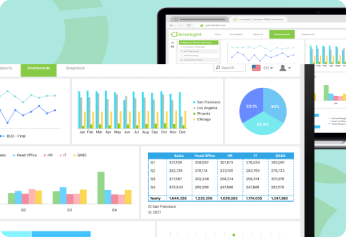Net income represents the financial heartbeat of any business or individual's economic health. Whether you're a CFO analyzing quarterly performance or someone managing personal finances, understanding net income helps you make informed decisions that drive long-term success.
What is Net Income?
Net income is the amount of money remaining after all expenses, taxes, and costs have been subtracted from total revenue. Think of it as your financial "take-home" amount - what's actually left in your pocket after paying all the bills.
In business contexts, net income appears as the bottom line on income statements, earning it the nickname "the bottom line." This figure tells stakeholders whether a company generated profit or suffered losses during a specific period.
For personal finances, net income represents your actual spending power. If you earn $5,000 monthly but pay $1,500 in taxes and deductions, your net income is $3,500 - the amount available for living expenses and savings.
The importance of net income extends beyond simple math. Investors use it to evaluate company performance, lenders assess loan eligibility based on it, and individuals rely on it for budgeting and financial planning. Without accurate net income calculations, financial decision-making becomes guesswork.
Understanding the Net Income Formula
1. Net Income Formula
The basic net income formula is straightforward:
Net Income = Total Revenue - Total Expenses
However, business calculations often require a more detailed approach:
Net Income = Gross Income - Operating Expenses - Interest - Taxes - Depreciation
Let's break down each component:
- Total Revenue: All money earned from sales, services, or investments
- Operating Expenses: Costs directly related to running the business (rent, salaries, utilities)
- Interest: Payments on loans and debt obligations
- Taxes: Federal, state, and local tax obligations
- Depreciation: The decline in value of business assets over time
Understanding these components helps you identify areas where expenses might be reduced or revenue increased.
2. Example of Net Income Calculation
Let's walk through a practical example using ABC Manufacturing Company's quarterly figures:
Step 1: Calculate Total Revenue
- Product sales: $500,000
- Service revenue: $75,000
- Total Revenue: $575,000
Step 2: Identify Operating Expenses
- Employee salaries: $200,000
- Rent and utilities: $50,000
- Raw materials: $150,000
- Marketing: $25,000
- Total Operating Expenses: $425,000
Step 3: Account for Additional Expenses
- Interest on loans: $15,000
- Taxes: $45,000
- Depreciation: $10,000
- Total Additional Expenses: $70,000
Step 4: Calculate Net Income Net Income = $575,000 - $425,000 - $70,000 = $80,000
3. Common Mistakes to Avoid:
- Forgetting to include all expense categories
- Mixing up gross and net figures
- Failing to account for depreciation
- Using inconsistent time periods for revenue and expenses
Net Income vs. Gross Income
Definition of Gross Income
Gross income represents total earnings before any deductions or expenses are subtracted. For businesses, this means total revenue from all sources. For individuals, it includes salary, bonuses, investment returns, and other income streams before taxes and deductions.
Gross income provides a starting point for financial analysis but doesn't reflect actual financial position. A company might show impressive gross income while struggling with profitability due to high expenses.
Key Differences
|
Aspect |
Gross Income |
Net Income |
|
Definition |
Total revenue before deductions |
Revenue after all expenses |
|
Business Use |
Shows earning potential |
Shows actual profitability |
|
Personal Use |
Total compensation |
Take-home pay |
|
Tax Implications |
Before tax calculations |
After tax obligations |
|
Decision Making |
Limited practical value |
Primary metric for planning |
Business Example: A restaurant generates $100,000 in monthly sales (gross income) but pays $80,000 in expenses, resulting in $20,000 net income. The gross income shows market demand, while net income reveals actual profitability.
Personal Example: An employee earns $60,000 annually (gross income) but receives $45,000 after taxes and deductions (net income). The net income determines actual budgeting capacity.
Importance of Net Income
Net income serves as the foundation for critical business and personal financial decisions. Here's why it matters:
1. For Business Stakeholders:
- Investors use net income to calculate return on investment and assess company value
- Management teams rely on it for strategic planning and resource allocation
- Lenders evaluate creditworthiness and loan capacity based on net income trends
- Employees may receive bonuses tied to company net income performance
2. For Financial Health Assessment:
Net income reveals whether operations generate sustainable profits. Consistent positive net income indicates healthy business fundamentals, while declining or negative figures signal potential problems requiring attention.
3. For Strategic Planning:
Companies use net income projections to plan expansion, evaluate new projects, and make investment decisions. Personal financial planning similarly depends on accurate net income calculations for budgeting and savings goals.
4. For Performance Measurement:
Net income enables period-to-period comparisons and benchmarking against industry standards. This comparative analysis guides improvement efforts and strategic adjustments.
Limitations of Net Income
Despite its importance, net income has several limitations that require careful consideration:
- Timing Issues:Net income reflects accounting periods that might not align with cash flow reality. A company might show strong net income while experiencing cash flow problems due to payment timing differences.
- Accounting Method Dependencies:Different accounting methods can produce varying net income figures for identical business activities. Depreciation methods, inventory valuation, and revenue recognition timing all impact results.
- One-Time Events:Extraordinary gains or losses can distort net income, making it less useful for predicting future performance. Asset sales, lawsuit settlements, or restructuring costs create misleading impressions of operational success.
- Quality of Earnings:High net income doesn't always indicate high-quality earnings. Companies might boost short-term net income through unsustainable practices like delaying maintenance or aggressive revenue recognition.
- Limited Context:Net income alone doesn't reveal the full financial picture. Cash flow, debt levels, and market position provide essential context that net income calculations miss.
Streamline Your Financial Planning with Limelight
Managing complex financial calculations and reporting can be time-consuming, especially when relying on spreadsheets and manual processes. Limelight offers an intuitive FP&A platform that automates net income calculations, integrates with your existing accounting systems, and provides real-time visibility into your financial performance.
With pre-built templates and dashboards, finance teams can focus on analysis and strategy rather than data consolidation. Discover how Limelight can transform your financial planning process and deliver faster, more accurate insights for better decision-making.
Frequently Asked Questions
Q: Can net income be negative?
A: Yes, negative net income (called a net loss) occurs when total expenses exceed revenue. This situation requires immediate attention but doesn't necessarily indicate business failure if temporary.
Q: How often should I calculate net income?
A: Businesses typically calculate net income monthly, quarterly, and annually. Individuals might track it monthly for budgeting or annually for tax purposes.
Q: What's the difference between net income and cash flow?
A: Net income follows accounting principles and includes non-cash items like depreciation. Cash flow tracks actual money movement and might differ significantly from net income.
Q: How can I improve my net income?
A: Focus on increasing revenue through better pricing or sales volume, while reducing expenses through efficiency improvements and cost management.
Q: Is higher net income always better?
A: Generally yes, but context matters. Extremely high net income might indicate under-investment in growth opportunities or unsustainable practices.
Table of Contents
Ready to put an end to outdated FP&A?
Get a perzonalized demo


